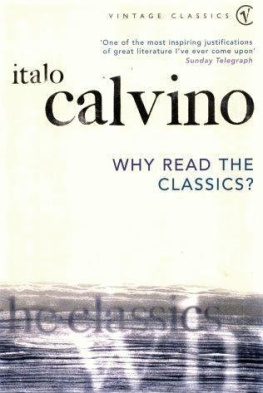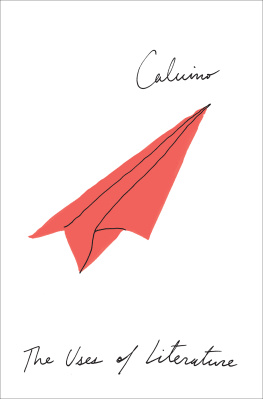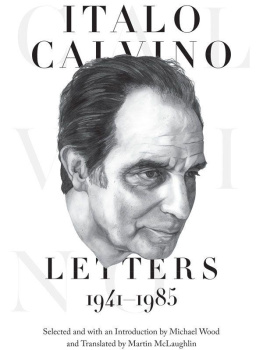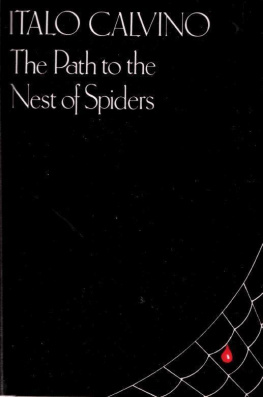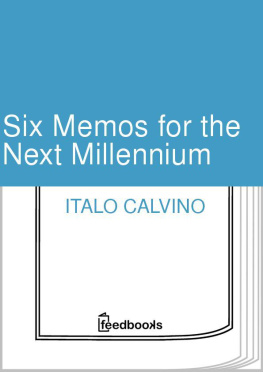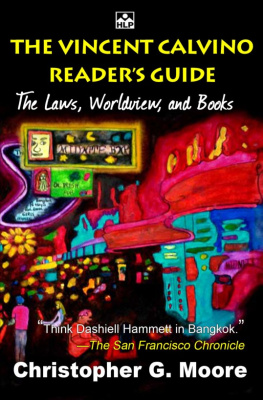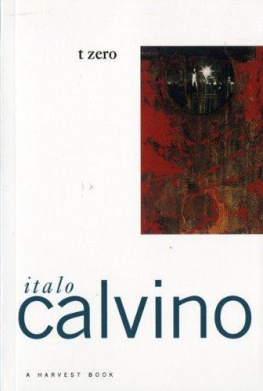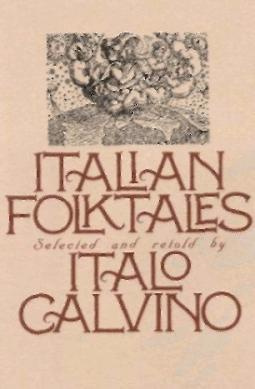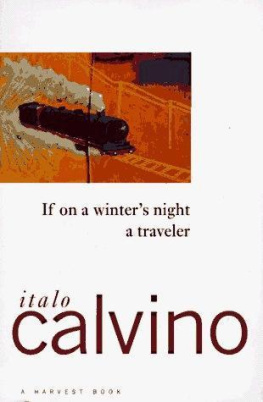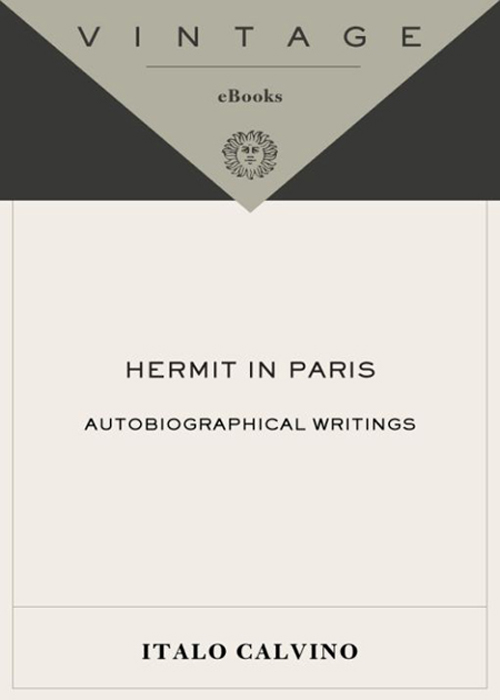
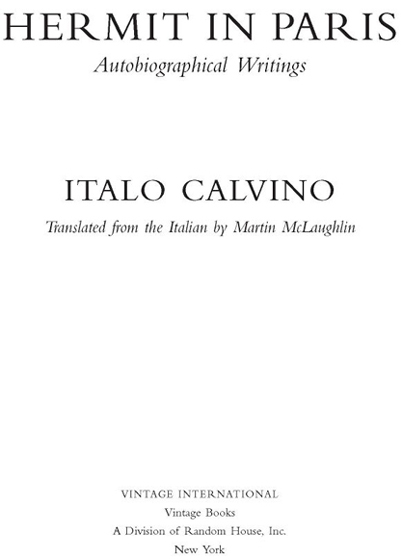
Table of Contents
I should like to thank Luca Baranelli for his incalculable support in this and in other matters, and for his equally precious friendship.
E. C.
Translators Note
I should like to acknowledge the valuable help given by the following: Luca Baranelli; Christopher Brooke; Giovanni Capoccia; Alan Divack and the reference librarian of the Ford Foundation; Cathy McLaughlin; Francesca Miotto; Oliver Ready; Neelam Srivastava; Emmanuela Tandello; Diego Zancani.
Preface
The bulk of this volume consists of twelve items published by Italo Calvino in different books, one unpublished piece American Diary and one work that was never published in Italy but was printed in Lugano in a limited edition, Hermit in Paris.
In August 1985, a month before he was due to leave for Harvard University, Calvino was tired and worried. He would have liked to have finished the six lectures that he was preparing before arriving in the USA, but he could not do so. He would make corrections, change the order, fiddle about, and then would leave everything as before, or almost. He was making no progress.
I thought that a possible solution was to persuade him to move on to something else, to concentrate on another of the many projects he had in mind. To my question: Why dont you leave the lectures and finish The Road to San Giovanni? he replied, Because thats my biography, and my biography is not yet... He did not finish the sentence. Was he about to say is not yet finished? Or maybe he was thinking, That book is not all of my autobiography?
Years later I came across a folder entitled Autobiographical Pieces containing a series of texts with notes already written by him about their first publication. There was, then, another autobiographical project, quite different from the one hinted at in TheRoad to San Giovanni. It is difficult, not to say impossible, to understand how Calvino would have presented these works, which he left in chronological order. There is no doubt that they refer to the most important aspects of his life, with the explicit intention of explaining precisely his political, literary and existential choices, of informing us about how, why and when they happened. The when was very important: in the note accompanying Political Autobiography of a Young Man, Calvino writes: As for the convictions expressed... they like every other work in this collection are only the testimony of what I believed at that particular time and not necessarily afterwards.
The material prepared by Calvino for this book goes up to December 1980. It is by the express will of the author that three of these fourteen pieces appear in two successive versions. I added the last five texts because they are strictly autobiographical and because they seem to me to complete the others.
Looking at this collection of texts it appeared to me that some of them lacked that sense of immediacy that one expects from an autobiography. It is not just for this reason that I thought of including American Diary 19591960. Calvino talked and wrote on several occasions of the importance that journey had in his life. And yet he decided, when it was already at the stage of second proofs, not to publish An Optimist in America, the book inspired by that trip. The explanation for this brusque change of mind is to be found in a letter to Luca Baranelli of 24 January 1985: I decided not to publish the book because rereading it at proof stage I felt it was too slight as a work of literature and not original enough to be a work of journalistic reportage. Was I right? Who knows? If it had been published then, the book would at least have been a document of its time, and of one stage in my journey...
American Diary, however, is nothing but a series of letters sent regularly to his friend Daniele Ponchiroli at Einaudi, but meant also for all his colleagues at the Turin publishing house and even, as Calvino says, for anyone who wants to know about his impressions and experiences in America.
As an autobiographical document and not as a piece of literature it seems to me to be absolutely essential; as a self-portrait, it is the most spontaneous and direct one we have.
The sense of this collection, then, could be: to effect a closer relationship between the author and his readers, and to deepen it by means of these writings. Calvino believed that what counts is what we are, and the way we deepen our relationship with the world and with others, a relationship that can be one both of love for all that exists and of desire for its transformation.
Esther Calvino
Stranger in Turin
I do not think that those of us who in the field of literature are Turinese by adoption are very numerous. I know plenty who are Milanese by adoption no wonder: almost all the writers in Milan are not native; the number of adopted Roman authors continues to grow; Florentines by adoption there still are, though less than before; but as for Turin, one feels that one has to be born there, or to have come down there from the valleys of Piedmont following the natural movement of the rivers that flow into the Po. In my case, however, Turin was actually the result of a deliberate choice. I come from a region, Liguria, which has only fragments or hints of a literary tradition, so that everyone can luckily! discover or invent his own tradition. Liguria is a region which has no clearly defined cultural capital, so the Ligurian writer a rare bird, to tell the truth is also a migrating bird.
Turin possessed certain qualities that attracted me that were not unlike those of my own region, and were ones I preferred: absence of romantic froth, reliance above all on ones own work, an innate diffidence and reserve; and in addition the sure sense that one was part of the big world of action, not the closed provincial world, a pleasure in living that was tempered with irony, and a rational, clarifying intelligence. So it was Turins moral, civic image, not its literary dimension, that attracted me. It was the lure of the Turin of thirty years earlier, which had been perceived and evoked by another adoptive Turinese, the Sardinian Antonio Gramsci, and which had been defined in certain passages that are still so stimulating today, written by a Turin intellectual this time of genuine extraction Piero Gobetti. This was the Turin of the revolutionary workers who in the aftermath of the First World War had organized themselves into the citys ruling class, the Turin of the anti-Fascist intellectuals who had refused to compromise. Is this Turin still alive today? Does it make its presence felt in todays Italy? I believe that it possesses the virtue of retaining its strength like a fire beneath the ashes, and that it continues to survive even when it least seems so. The Turin that was for me a world of literature was identified with one single person, to whom I had been lucky enough to be close for a number of years but whom all too soon I lost: a man about whom much is written these days, and often in a way that makes it difficult to recognize him. The fact is that his own writings are not capable of giving us a full picture of him: for it was his example of productivity that was fundamental, witnessing how the culture of the man of letters and the sensitivity of the poet were transformed into productive work, into values that were put at the service of his neighbours, into the organization and commerce of ideas, into practice and into a school of all the techniques of which a modern cultural civilization consists.
Next page

